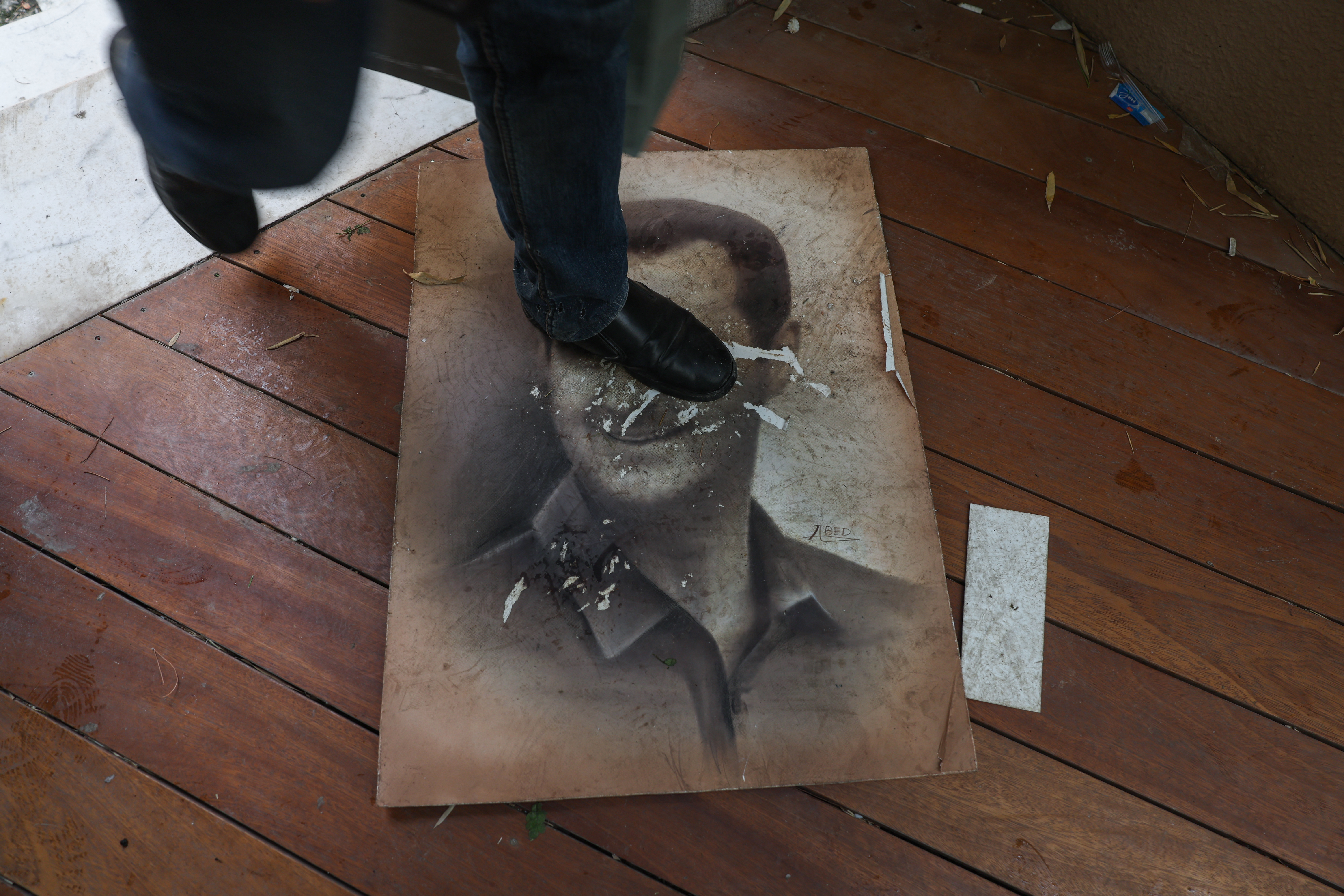Syrian embassy in Beirut suspends services over fake passports allegations for Assad family
A man treads on a picture of Syria's ousted Bashar al-Assad, in his residence in Damascus, Syria, Dec. 8, 2024. (AFP Photo)
December 29, 2024 09:46 AM GMT+03:00
Syria’s Embassy in Beirut has suspended consular activities amid allegations that it issued fake passports to relatives of dictator Bashar al-Assad. An embassy statement confirmed operations were on hold “until further notice” but did not provide a specific reason.
However, Lebanese security sources told the Associated Press the freeze relates to fraudulent travel documents issued to Assad’s extended family members.
Why it matters
These developments highlight the continuing legal and diplomatic fallout surrounding the Assad regime. Even after dictator Bashar al-Assad’s ouster, key figures in his circle are reportedly still using official channels to bypass travel restrictions. The situation also underscores Lebanon’s complicated relationship with Syria, particularly with regard to the cross-border movement of regime officials and relatives.
Bullet holes deface a mural depicting the toppled Syrian president Bashar al-Assad in Adra town on the northeastern outskirts of Damascus on December 25, 2024. (AFP Photo)A damaged portrait of Syrian President Bashar al-Assad is hangs in the city of Qamishli, on December 8, 2024. (AFP Photo)
Details
- Suspicion of fraud: Lebanese media report that a cousin-in-law of dictator Bashar al-Assad, alongside her daughter, allegedly paid large sums at the embassy to alter expiry dates on their Syrian passports, enabling quick travel through Lebanon to Egypt.
- Consular freeze: Syrian authorities launched an investigation to determine whether additional Assad family members—or others—obtained similar illicit documentation.
- Arrests and deportations: In a separate event, Lebanese officials recently deported 70 members of Assad’s forces for entering the country illegally. Reports indicate that some of the dictator’s relatives were also detained for passport fraud at Beirut’s Rafik Hariri International Airport on December 27.
- High-profile departures: On Dec. 24, Assad’s uncle, Rifaat al-Assad—accused of war crimes—departed Lebanon for Dubai by private jet. Rifaat has previously been convicted of corruption-related offenses by international courts.
Broader context
- Family dynamics: Despite Bashar al-Assad’s fall from power, members of his influential family remain scattered across the Middle East and Europe. Figures like Rifaat al-Assad have faced legal scrutiny for alleged financial crimes and gross human rights abuses.
Rifaat al-Assad, uncle of dictator Bashar al-Assad (AFP Photo)
- Legacy of the 1982 Hama massacre: Rifaat commanded troops that besieged Hama, killing tens of thousands of civilians over 27 days. The massacre is widely considered one of modern Syria’s worst atrocities.
- Ongoing investigations: Officials in Damascus are now reviewing embassy files to gauge the extent of the alleged passport fraud. Meanwhile, Lebanese authorities maintain a policy of deporting illegal entrants, even if they are linked to the dictator’s family.
December 29, 2024 09:46 AM GMT+03:00


